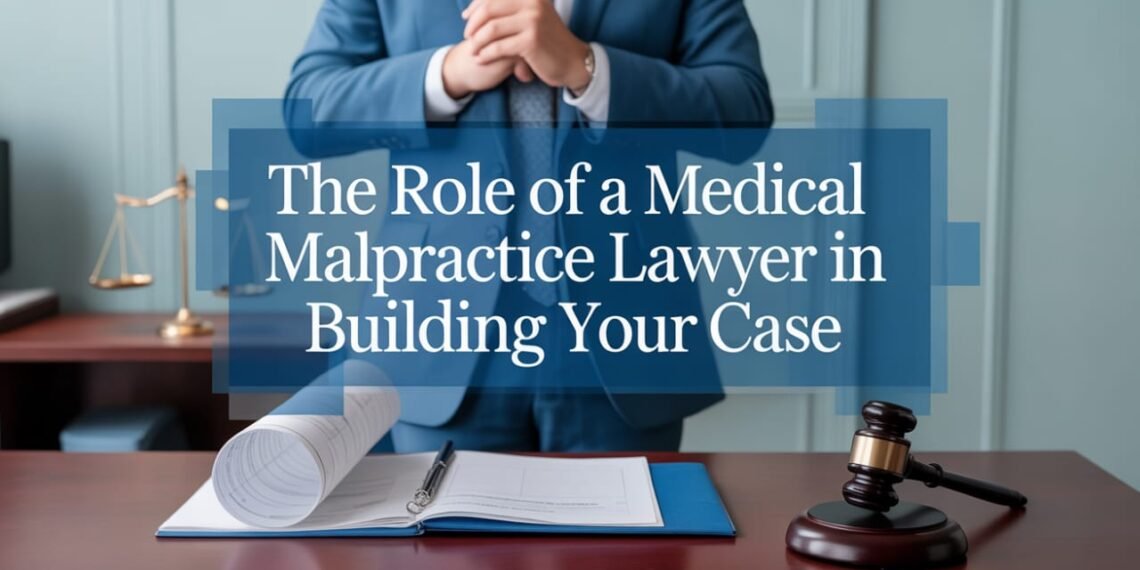Discover how a lawyer can be biased, with examples, signs to watch for, and what to do if you suspect bias in your attorney.
We’ve all heard about the importance of impartiality in the legal system. But what happens when the person who is supposed to represent you — your lawyer — is biased? It’s a question that can make any client uncomfortable or even anxious. After all, you’re placing a lot of trust in this person. So, how can a lawyer be bias? What are some examples of lawyer bias, and more importantly, how does one tell if one’s attorney is biased? This article will answer these questions and take you through some tips on what to do if you suspect bias from your attorney.
It’s a topic that unfortunately hits home for many people. I’ve seen friends and colleagues grapple with it, and years ago, I found myself in a similar situation. My own experience with lawyer bias was quite an eye-opener, and I’ll share bits and pieces of that story with you as we move along. Hopefully, by the end of this article, you will leave with a better understanding of what lawyer bias looks like, how it might manifest, and the steps one might take to protect themselves.
Table of Contents
What does “bias” mean within the legal context?
Before we begin, let’s define what bias, as applied to lawyers, really means. Bias, within the context of the practice of law, refers to a process whereby the act, decision, or conduct of an attorney is dictated not by objective legal reasoning but by subjective opinions, prejudicial feelings, or personal interest in a case. Similar to judges, attorneys are supposed to be impartial representatives of the interests of their clients. When bias intrudes into this, it can seriously affect the fairness of the process.
Types of Lawyer Bias
There are many shapes and forms that lawyer bias may take, and they may not be quite as overt as one might imagine. Some common forms of bias that might affect a lawyer’s judgment include the following:
My Encounter with a Biased Lawyer

I will never forget the time I was represented by an attorney who had, what I perceived to be, a personal bias against my case. It was a legal dispute over intellectual property rights, which I perceived as a very passionate subject of mine. I had thought all of the evidence was cut and dry; however, my attorney minimized any hopes for success in just about every regard. I had at first thought they were being real. But I soon came to realize that such a lack of interest was never on the merits of my case, but because they never believed in the type of business I was running.
Subtle, perhaps, but it did come out a bit more as time went on. They’d make these off-the-cuff remarks about how “unrealistic” my industry was or how “people like me” didn’t usually win in court. The first time I’ve experienced firsthand how a lawyer’s personal bias might affect a case let me tell you, it wasn’t a good feeling.
How to Tell if Your Attorney is Biased
Recognizing bias in your lawyer can be tough since lawyers are trained to keep a professional face. Nevertheless, these are some potential red flags. If you are wondering how to tell if your lawyer is biased, then just look out for these behaviors:
Lawyer Bias Examples
Let’s flesh out some of these points. Here are a few lawyer bias examples that might help you apply them to your own situation:
Example 1:
A client is in the middle of a custody battle, and his attorney favors one side’s father it seems that the better-suited parent for the child is the mother. The attorney’s partiality may be because of personal feelings about gender parent roles.
Example 2:
Suppose a lawyer is representing a very large corporation against a small business owner. Suppose this lawyer has previously represented large corporations several times and may have contracted an inability to perceive small businessmen as winning parties. This may lead to the attorney’s offering worse advice to the representative of the small businessman.
Example 3:
Suppose a lawyer is representing her client in a criminal defense case. Maybe unconscious bias makes her feel that racial group X people are more likely to commit any crime compared to others. Resulting from such biases may lead her to advise the client to accept a plea bargain when the evidence of guilt is weak. This lawyer is not representing and advocating her client’s rights with as much zeal as she should.
What to Do If Your Attorney is Biased

So, what do you do if you suspect your lawyer is biased? An intimidating situation, perhaps, but you are not bereft of ways to protect both yourself and your case. Here’s what you could do:
1. Speak with your Attorney
The first thing to do is to communicate. If one notices behaviors that seem biased, one should bring them up with his or her lawyer. Be straightforward but tactful. Sometimes, a lawyer may not even realize they are showing bias. In other situations, they might have a perfectly reasonable explanation for their actions that you hadn’t considered.
This might be in words such as: “I feel like my attorney is pushing for an early settlement, where you would say, “I have noticed that you have been urging me to settle this matter early. Can you help me understand why you think this is the best option, and are there any alternatives?
2. Second Opinion
If you are still feeling uncomfortable after speaking with your attorney, then that is a good time to get a second opinion. Being able to consult another attorney will provide you with a different analysis of your case and perhaps tell you whether your attorney’s actions are truly one-sided or just his strategy in handling your case.
When I was dealing with a biased lawyer, it was seeking another opinion that turned the tide. The new lawyer immediately pointed to places where my previous attorney had been dismissive, with alternative strategies that eventually led to a better outcome.
3. Submit a complaint
If the bias is extreme or has caused significant harm to your case, you might want to consider filing a complaint with your state bar association. Attorneys are subject to a strict code of ethics and, when they violate those codes by allowing bias to impact their representation, they are subject to discipline.
4. Consider Changing Lawyers
Sometimes, despite your best efforts, the relationship with your lawyer may simply be too damaged to continue. Do not be indifferent to changing lawyers if you feel that your current attorney’s bias hurts your case. Sure, it is a hassle to change your representation mid-case, but often it is better than continuing with someone not wholly on your side.
Immediately upon replacing the attorneys in my intellectual property case, I literally felt the weight lifted off my shoulders. My new attorney was much more vocal and firmly believed in the merits of my case. It certainly made all the difference in how things actually played out.
FAQs
1. Can a lawyer be disqualified in a case based on bias?
Yes, a lawyer can be removed from the case once bias or a conflict of interest can be proven. If bias or a question of conflict of interest is found on the part of the lawyer, then the court can disqualify them to continue with a client. Also, a client may dismiss his or her attorney and find new representation if he or she feels that bias is affecting the quality of legal representation. This may involve appeals or other legal remedies when bias has already affected the process of law.
2. What do I do if I think my attorney is biased against me?
This is the first step in case you feel your attorney harbors some kind of bias: inform them directly. Find out why they have done something that would make you think they are biased. In any event, if their answer is unsatisfactory, this is where seeking a second opinion from another lawyer helps, to get an objective analysis of your case. If the prejudice is overwhelming or destructive, you can file a complaint with your state bar association, or you might wish to replace the attorney. You can also file a complaint, which may lead to disciplinary action if you believe the lawyer has acted unethically.
3. What are some signs that maybe a lawyer is biased?
Common signs of bias on the part of an attorney include being dismissive of your case or concerns, trying to settle early without pursuing all avenues, treating you differently than other clients, not communicating with you, or showing, in any way, a personal or financial conflict of interest. Also, if your lawyer has a prior relationship with the opposing party or holds personal beliefs that may influence their judgment, these could be incidents of bias.
4. May a lawyer have personal opinions concerning his client or a case in which he is involved?
While lawyers, like everybody else, may have a personal view on a matter, they are nonetheless bound by professional ethics to be impartial and work assiduously for the representation of their clients. The Model Rules of Professional Conduct by the American Bar Association simply state that a lawyer shall not permit personal opinions or conflicts of interest to interfere with professional duties. If the personal opinions of a lawyer interfere with his or her representing a client properly, this could be considered an ethical breach, and one for which the client may take action.
Final Thoughts
In general, though it may sound awful that a lawyer might be biased, being knowledgeable and taking the right initiative would enable an individual to sail through successfully. It needs to be pointed out that any kind of bias may either relate to a personal belief of a lawyer influencing his professional judgment or a conflict of interest whereby a lawyer’s objectivity is compromised. The identification of bias upfront allows you, through open communication with your attorney, to clear the air so that you are both on the same page regarding the objectives of the case.
If necessary, take the time to find other representation to help you with your interests. I believe that the chance to get a second opinion from another lawyer may bring some sense and confidence your way. You are within your rights and can well afford to ensure your legal counsel is equitable in fairness. Remember always, that your attorney works for you, not you for them. You are entitled to representation that prioritizes your needs and rights above all else.
Disclaimer:
This article is for informational purposes only and not legal advice. The content is based on current legal standards but should not replace professional legal counsel. Always consult a qualified attorney for advice specific to your situation and jurisdiction. The authors assume no liability for actions taken based on this article.
Additional Resources
If you’re dealing with issues of lawyer bias or just want to learn more about the topic, here are some valuable resources:


